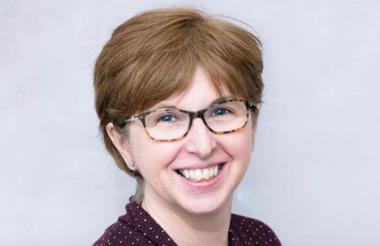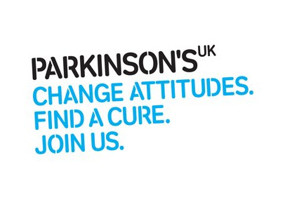After spending more than two decades in the public and private sectors, Caroline Rassell wanted to work somewhere where she could make a greater impact.
Rassell was drawn to the charity sector and in September 2020, she became a trustee of her local hospice.
The following year, she joined Versus Arthritis as interim director of planning and operations and in June 2021 she was announced as chief executive of Parkinson’s UK.
‘Numbers told a story’
Rassell trained and qualified as an accountant in the 1990s through various local authorities, a job she had dreamed of doing since she was seven.
“I found that numbers told a story and that really excited me. Whether it’s looking at patterns or recognising that behind lots of different decisions, there’s a number base that’s driving it,” she says.
She was drawn to local government because her whole family were public servants so it was the natural career path for her.
“I knew that I wanted to do something that not only could fulfil my dream of being an accountant but also that was rooted in public service and good.
“I was really blessed with the people I worked with. All of them were inspirational in terms of looking beyond the numbers and always connected with the story.”
‘Politics gets in the way’
At the turn of the century, Rassell moved into the health sector, which she describes as a “completely different challenge”.
Working in local government, “you’ve got a really close connection with your community”, she says, but in the NHS “while it was still locally focused, lots of the rules came from the centre”.
“That presents very different challenges and your ability to provide what you want locally is sometimes compromised by national standards and ways that you report.”
Rassell says that working in the NHS, where she held positions including as a chief finance officer at several primary care trusts, was a great experience but brought “lots of pressure”.
“I take my hat off now to finance professionals working in local government or the NHS because it is really tough.
“There’s a lot of demand and not enough money and all too often there isn’t the bravery to make decisions that will allow the best use of the resources you’ve got. Politics gets in the way sometimes.”
In 2014, she became a chief executive in the NHS, which was a “great transition”, she says.
“Finance gives you a brilliant background because you see all of an organisation. Stepping up to be chief executive is difficult and lonely, but I thought my moral compass was always in the right place.
“I had an amazing experience in the NHS as a chief executive. The bit I really loved was getting out and meeting communities and the population we were there to serve. But it’s very difficult to make an impact as so much is national and set for you.”
‘Massive responsibility’ over donors’ money
At Parkinson’s UK, Rassell manages an annual budget of around £40m – its income has fluctuated from £36m to £53m in recent years – which comes mainly from donations and membership and legacies.
This, she points out, is 50 times smaller than the £2bn budget she managed while working in the NHS, but is nonetheless challenging.
“The difference is that that £2bn was given to me by the [then] Department of Health to deliver set targets. There was little flexibility and never enough money and I moaned about £2bn! But I knew each year that that was coming in.
“Moving into the third sector, I start the year with zero, absolutely nothing in the bank, and everything that we get we have to fundraise for.
“I can’t moan that I don’t have enough money because I’ve got an amazing fundraising team and community who have done an activity or given us that money to provide better care or research for people with Parkinson’s.”
Rassell says she is motivated to spend the charity’s money carefully “because it’s often being given by those people or people who are close to that community”.
“The difference in financial terms is huge, but the impact that someone has personally given you the money – that’s a massive responsibility.
“I feel more responsible now in some ways than when you’re given the money by a government body to do things they’ve told you to do. I view it as a complete privilege.”
Employing more people with Parkinson’s
Last year, Parkinson’s UK published its first equality, diversity and inclusion strategy, in which it pledges to “reflect the demographics of the UK population in our workforce” by 2026 among other things.
The charity, which currently employs 490 people, has committed to hiring more workers with Parkinson’s and more employees living with disabilities to reflect the working-age population.
It also pledged to have at least 14% of its workforce from a minority ethnic background to reflect the demographic of the UK.
“At the moment, we’ve got 13% of our employed staff who are from different ethnic backgrounds. That’s good but it could be better. Around 10% of our staff has a disability,” Rassell says, compared to around 23% of the working-age population.
“One area we know we must do better on is the number of people with Parkinson’s who work for the charity. That seems to me something that should be much easier to do than it is.
“We’ve recently been looking at how we recruit. What I’m keen to do is learn from the people we’ve recruited what would have been better and could have worked so that we’d have more people interested to come and work with the charity. We’ve made progress but the opportunities to do more are definitely there.”
Currently, six people working at the charity, around 1% of its workforce, have Parkinson’s, a figure Rassell is “not particularly proud of”.
“I would love it to be more,” she says, but adds that the charity’s volunteers are more representative of the community.
“If I’m looking at the whole of my workforce [including the charity’s around 3,500 volunteers], so everyone who delivers something to our community under the banner of Parkinson’s UK, then we’ve got a significant proportion of people with Parkinson’s and I think that’s positive.
“Our board is made up of people who are either affected by Parkinson’s or have Parkinson’s, as well as some board members who are recruited specifically for their particular skills or expertise.
“Certainly, at the very top of the organisation it’s absolutely focused on the beneficiary we’re here to provide for.”
‘Stronger together’
In June last year, Rassell became president of the Chartered Institute of Public Finance and Accountancy (CIPFA), making her the first person from the third sector to hold such position in CIPFA’s 139-year history.
“I’m also the first Essex girl president, which is a real honour,” she says.
“It’s a great opportunity for me on every level to encourage accountants to think about working in the third sector. CIPFA has a public voice around public finance and the best use of public money.
“I’ve got the opportunity to talk with influence about the importance of recognising what the third sector is, what it does and how reducing public spend on certain areas just increases the pressures in the third sector.”
All CIPFA presidents have three key themes for their presidency and Rassell’s are sustainability, social mobility and stronger together.
These themes, she says, are as relevant for charities as they are for the public sector and accountants.
“Everybody I think recognises the importance of social mobility. Every organisation should represent the people it is here to serve.
“At CIPFA, I’m very keen that we represent the diverse nature of the UK because we should be encouraging everyone from every background to think about different careers. That’s really important.
“At the moment, a lot of societal pressures push people afar and into silos. The more we work together, the more we get the power of different ideas and resources and we just develop and grow so much better.”
Related articles











